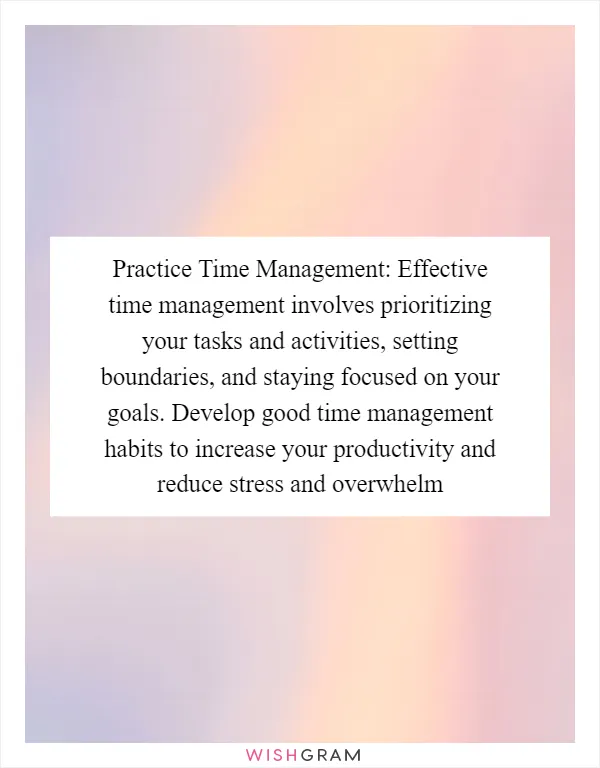Practice Time Management: Effective time management involves prioritizing your tasks and activities, setting boundaries, and staying focused on your goals. Develop good time management habits to increase your productivity and reduce stress and overwhelm
Effective time management is crucial for staying organized and achieving your goals. By prioritizing your tasks and activities, setting boundaries, and staying focused, you can increase your productivity and reduce stress and overwhelm. Here are some tips to help you develop good time management habits.
Firstly, it's important to prioritize your tasks. Start by making a to-do list and identifying the most important and urgent tasks. By focusing on these tasks first, you can ensure that you are making progress on your most critical responsibilities. This will help you avoid wasting time on less important activities and prevent you from feeling overwhelmed.
Setting boundaries is another key aspect of time management. Learn to say no when necessary and avoid taking on too many commitments. It's important to recognize your limits and not overextend yourself. By setting boundaries, you can allocate your time and energy more effectively, ensuring that you have enough resources to complete your tasks and achieve your goals.
Staying focused is essential for effective time management. Minimize distractions by creating a conducive work environment. Turn off notifications on your phone or computer, close unnecessary tabs, and find a quiet space where you can concentrate. By eliminating distractions, you can maintain your focus and complete your tasks more efficiently.
To further enhance your time management skills, consider using productivity tools and techniques. There are numerous apps and software available that can help you track your time, set reminders, and manage your tasks. Experiment with different tools to find what works best for you and integrate them into your routine.
Remember to take breaks and recharge. While it may seem counterintuitive, taking regular breaks can actually improve your productivity. Allow yourself short breaks throughout the day to rest and rejuvenate. This will help prevent burnout and keep your energy levels high, enabling you to work more efficiently when you return to your tasks.
Lastly, be flexible and adaptable. Unexpected events and changes in priorities are inevitable. By being flexible and adjusting your plans accordingly, you can better manage your time and avoid unnecessary stress. Learn to adapt to new circumstances and be willing to revise your schedule when needed.
